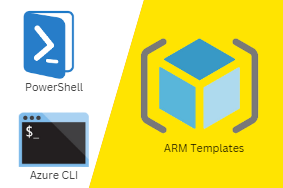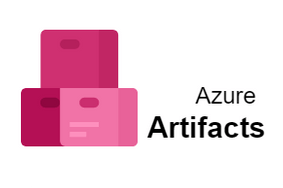If you’re reading this, you’re probably interested in how to become a Professional Cloud DevOps Engineer (or DevOps Engineer). You may have noticed there are very few clear-cut and well-defined pathways to this position, despite the fact that it’s such an important and lucrative position in IT today. This post provides everything you need to know about what it takes to be considered a DevOps Engineer and get your foot in the door, even if you don’t have experience with all of the elements mentioned below.
(1) Choosing the Right Tools
Choosing tools is one of your first responsibilities as a devops engineer. We’ve done surveys with our devs and found that 80% of developers believe there are too many tools in an average dev environment. There’s always going to be some variation in tool selection, but unless you work on literally hundreds of different projects at once, it makes sense to consolidate. If possible, choose a tool suite that can handle configuration management, deployment automation, monitoring/logging and performance testing all in one go. That will save you and your team countless hours; hours that you can spend on new technology or something else more interesting and valuable.
(2) Be Present
Time spent in present is better than any other time. Whatever you are doing in present should be more important and interesting for you than anything else in your life at that moment. What could be done right now? What should I be doing right now? Right Now!!!!!!
(3) Don’t Micro-manage
Just because you’re in charge doesn’t mean you have to tell everyone what to do all day. People want autonomy. They want room for creativity and that means letting them take ownership of their role on your team. Micro-managing won’t just make them hate you but it will slow down your team and ultimately get in your way of getting things done. Be sure not only to delegate work, but also responsibility. When people know they have ownership, they’ll be more likely to contribute extra time and energy when they don’t need extra guidance or instruction from their manager. If people feel like they’re just cogs in a machine, then they won’t care about what goes on behind-the-scenes or even at all.
(4) Do Lateral Thinking
Lateral thinking is, in a sense, to think out of the box. It’s a different approach to problem solving and requires you to consider things that are seemingly unrelated. In lateral thinking you try everything even if it may seem absurd and off topic because it could lead you on a completely different path. You want your creativity unlocked so that you can see through problems in new ways. Practice lateral thinking regularly by asking yourself: What would I do if I knew nothing? or How would someone else attack this problem? Try going against your gut reactions and be as random as possible when making decisions about what to do next.
(5) Learn From Past Mistakes
It’s impossible to anticipate every problem that might occur in your code, so learn from past mistakes. When something goes wrong, step back and ask yourself what happened. When was the last time you saw similar errors? What caused them? Could you have caught it in advance if you had been paying closer attention or checking more thoroughly? Next time, be sure to take steps to avoid it happening again. Keeping track of your errors is not only helpful for troubleshooting and preventing future issues; they’re also important data points that show you what works and what doesn’t work. There are few skills more valuable than an ability to learn from your own mistakes, but everyone makes them!
(6) Communicate Often
If you’re not talking to your DevOps team daily, you’re going down a dangerous path. You need constant communication between your IT operations and development teams. This means that all changes are planned ahead of time and communicated with all interested parties on a regular basis. If you can’t communicate, then there is something wrong with your systems or processes. Both operations and development teams need constant feedback in order to work well together—and once they have it, things will progress quickly and smoothly.
(7) Check in with your team regularly
This is probably one of my favorite hacks, because it’s important and requires so little work on your part. But it makes an incredible difference to employees when you check in with them regularly. The more junior they are, and maybe even those who have been around for a while but don’t feel like their opinion matters much, will appreciate having someone in leadership that actually cares about what they think and gets excited about their ideas. This ensures your team sees that you are actually listening, which drives engagement up dramatically.
(8) Work Hard, Relax on Weekends
One of the biggest mistakes you can make as an aspiring developer is working yourself into burnout. At some point in your development career, you will get so excited about writing code that you’ll have trouble controlling yourself. Resist! As tempting as it is to stay at your desk for 15 hours straight, doing so may actually slow down your coding progress over time. There is no need for such dedication and overwork; seven hours a day is enough, if done correctly. Just try not to spend all of those hours sitting at your desk; taking short breaks—even just going for walk outside or playing video games—can help refresh your mind.
(9) Get Organized
Developing Organization Skills and Getting Things Done. One of my biggest personal struggles is organization and task management. My productivity, both personally and professionally, has improved greatly since I have started developing better organization skills. Here are some tips that have worked for me when getting organized: *Start out small – If you feel overwhelmed or just need a quick refresher on how to get organized, start with one or two items on your to-do list and work through them one at a time.
(10) Collaborate with Developers and Testers
DevOps engineers don’t just build, they work with other members of their team (developers and testers) on improving systems and processes. From brainstorming solutions to roadblocks to addressing new customer requests, DevOps engineers participate in every aspect of software creation. A healthy dose of curiosity is important for cloud developers as no two projects are alike; each one requires its own set of tools and ideas. By sharing information about their successes and failures, cloud developers can continue to push themselves—and learn from one another at the same time.



1 Comment
Sumit verma · January 18, 2022 at 5:20 am
Thans Arjun for such a wonderful information regarding devops as usually people gets stress while working and complete the project